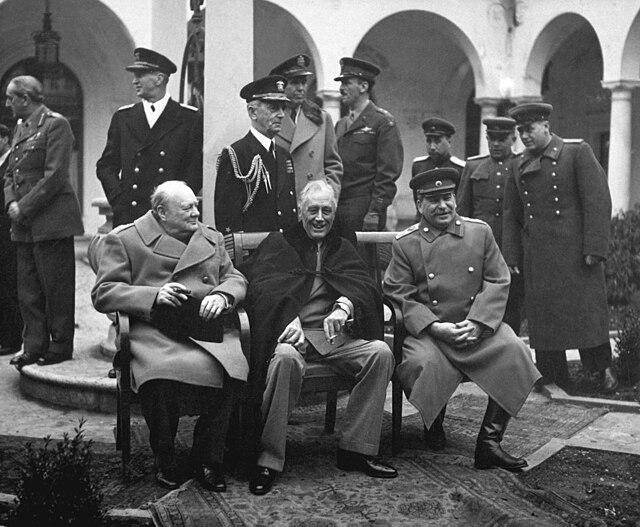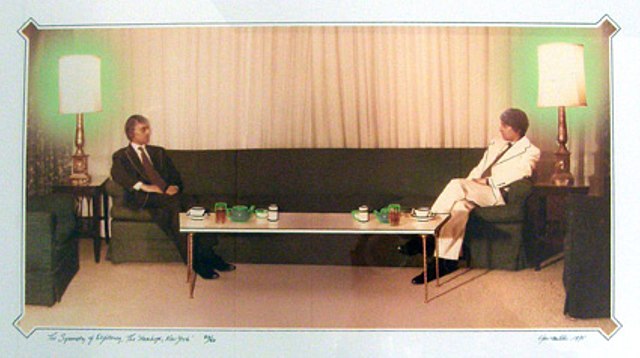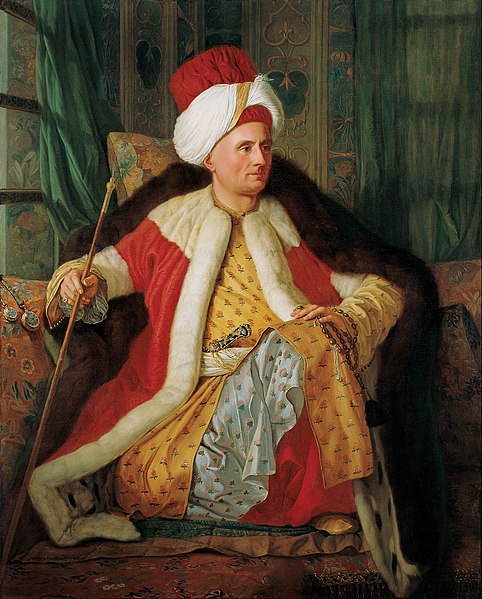Diplomacy comprises spoken or written communication by representatives of state, intergovernmental, or nongovernmental institutions intended to influence events in the international system.
Winston Churchill (Prime Minister of the United Kingdom), Franklin D. Roosevelt (President of the United States) and Joseph Stalin (General Secretary of the Soviet Union) at the Yalta Conference, 1945
Ger van Elk, Symmetry of Diplomacy, 1975, Groninger Museum
The Egyptian–Hittite peace treaty, between the New Kingdom of ancient Egypt and the Hittite Empire of Anatolia
A French ambassador in Ottoman dress, painted by Antoine de Favray, 1766, Pera Museum, Istanbul
Foreign policy, also known as external policy, is the set of strategies and actions a state employs in its interactions with other states, unions, and international entities. It encompasses a wide range of objectives, including defense and security, economic benefits, and humanitarian assistance. The formulation of foreign policy is influenced by various factors such as domestic considerations, the behavior of other states, and geopolitical strategies. Historically, the practice of foreign policy has evolved from managing short-term crises to addressing long-term international relations, with diplomatic corps playing a crucial role in its development.
J. K. Paasikivi, the President of Finland, was remembered as a main architect of Finland's foreign policy with the Soviet Union after the Second World War. From left to right: President Paasikivi and Soviet head of state Kliment Voroshilov in Moscow.
The Farnesina in Rome, seat of the Italian Ministry of foreign affairs
Meeting between the prime ministers of Spain and Poland (Jarosław Kaczyński), in 2007







